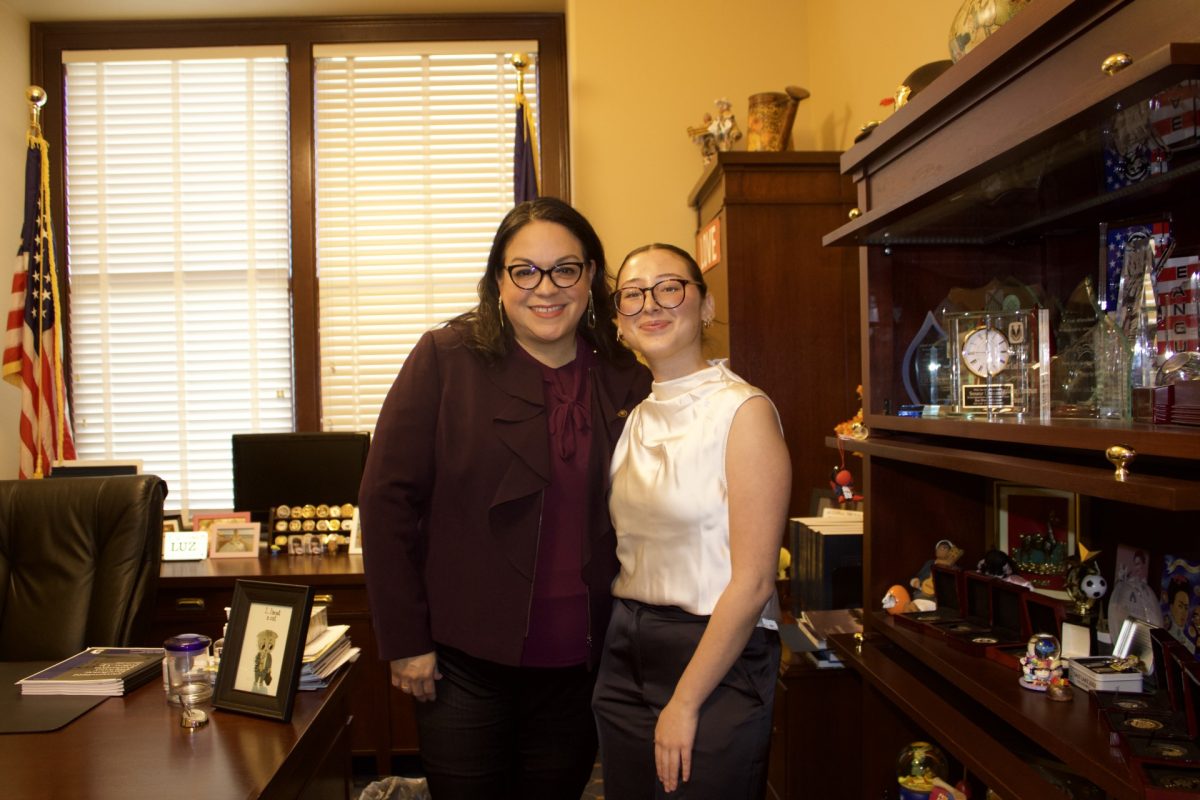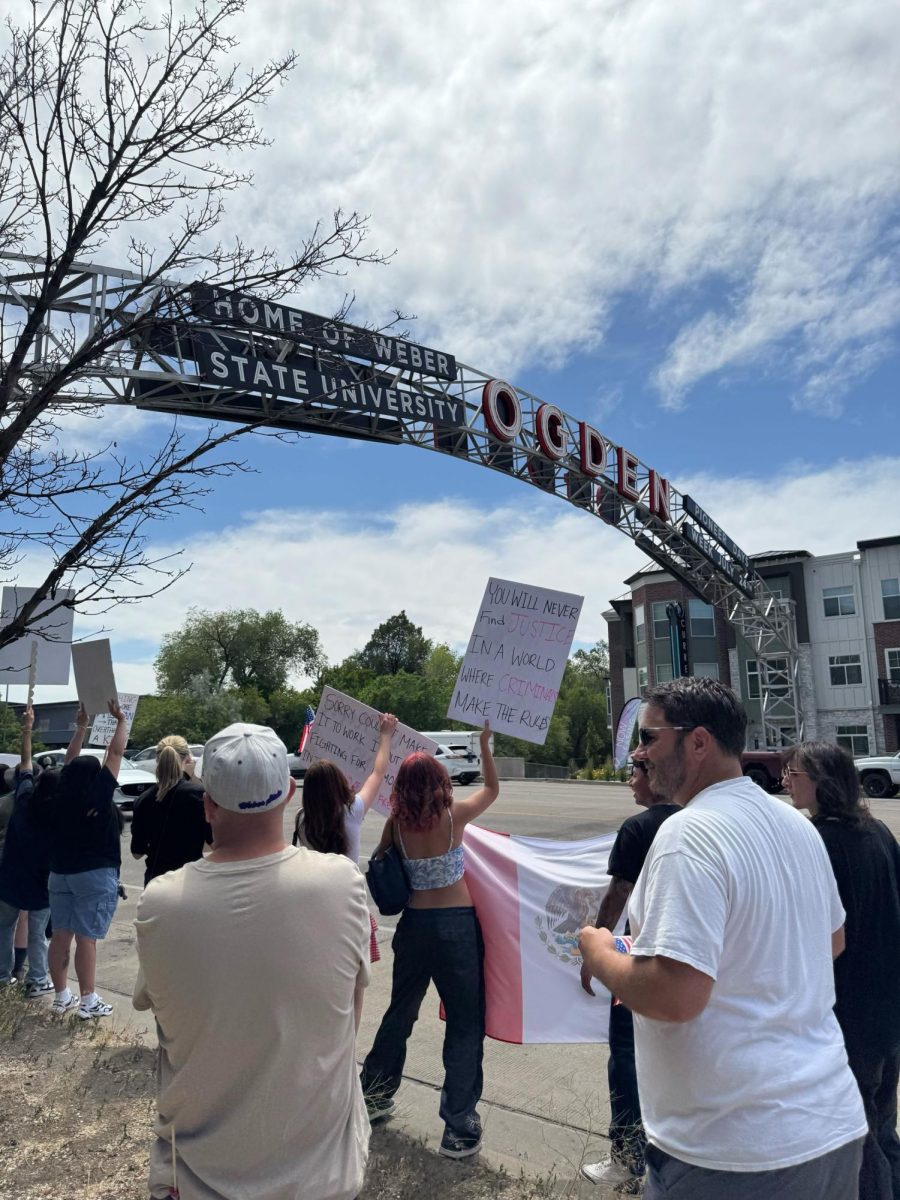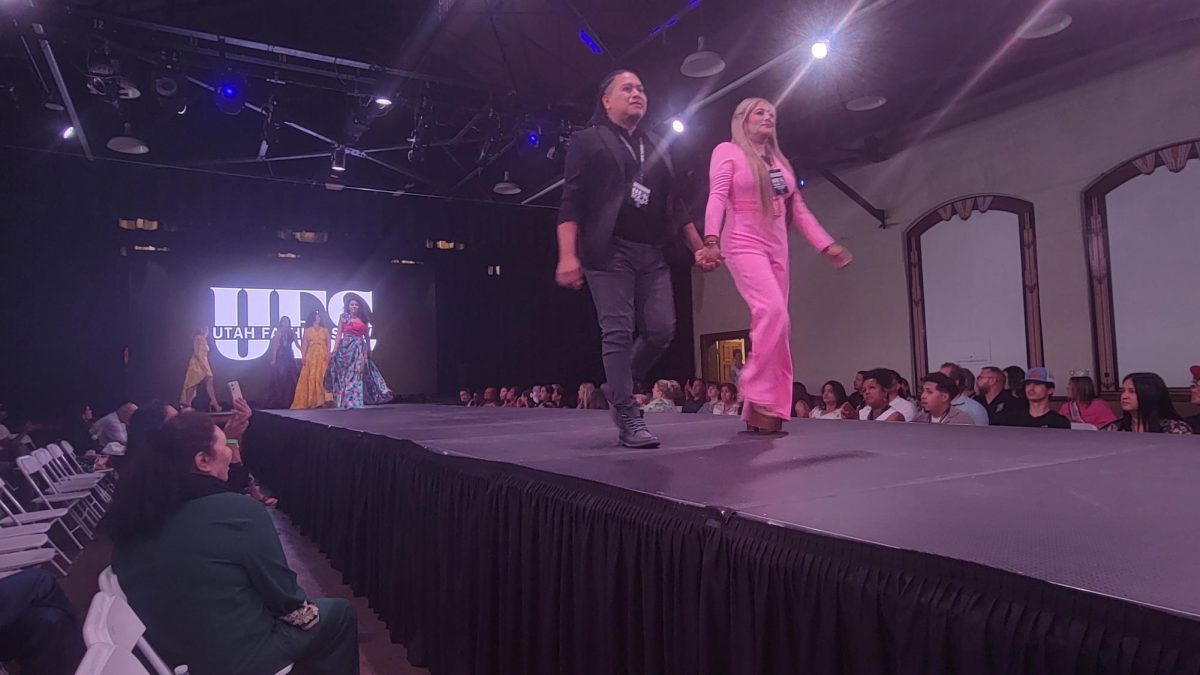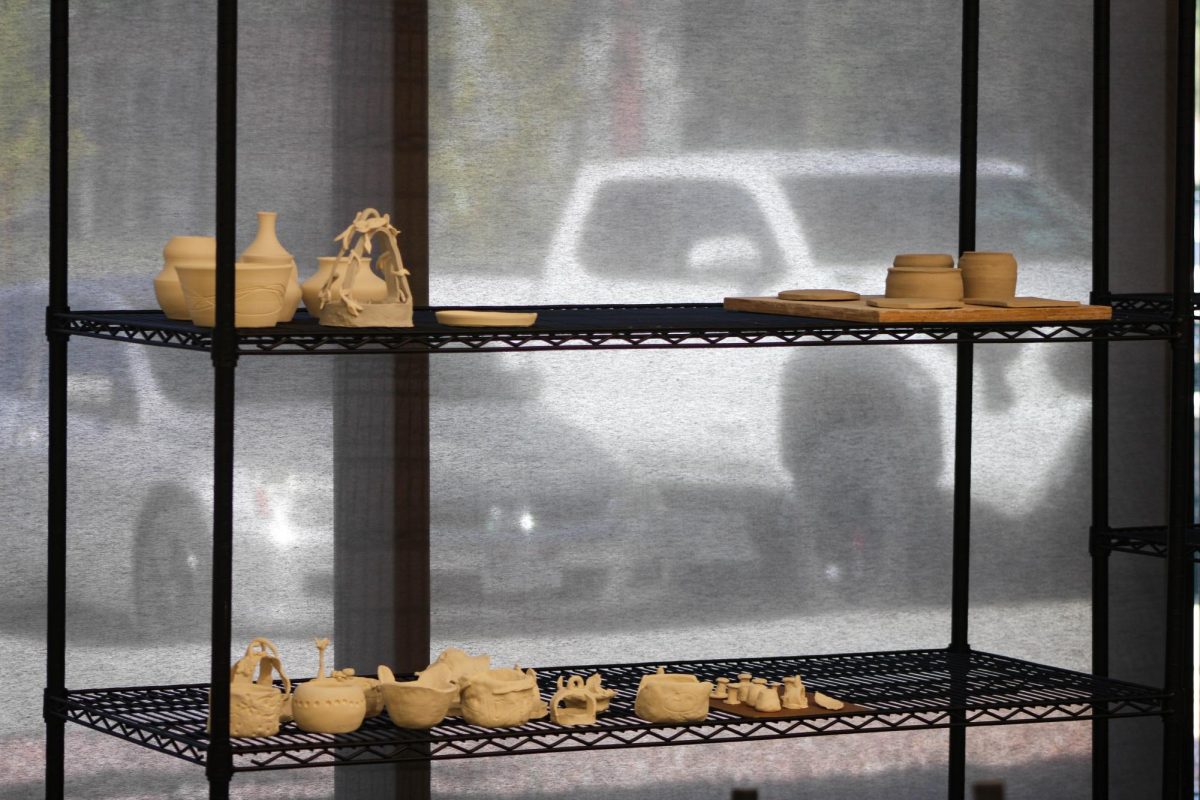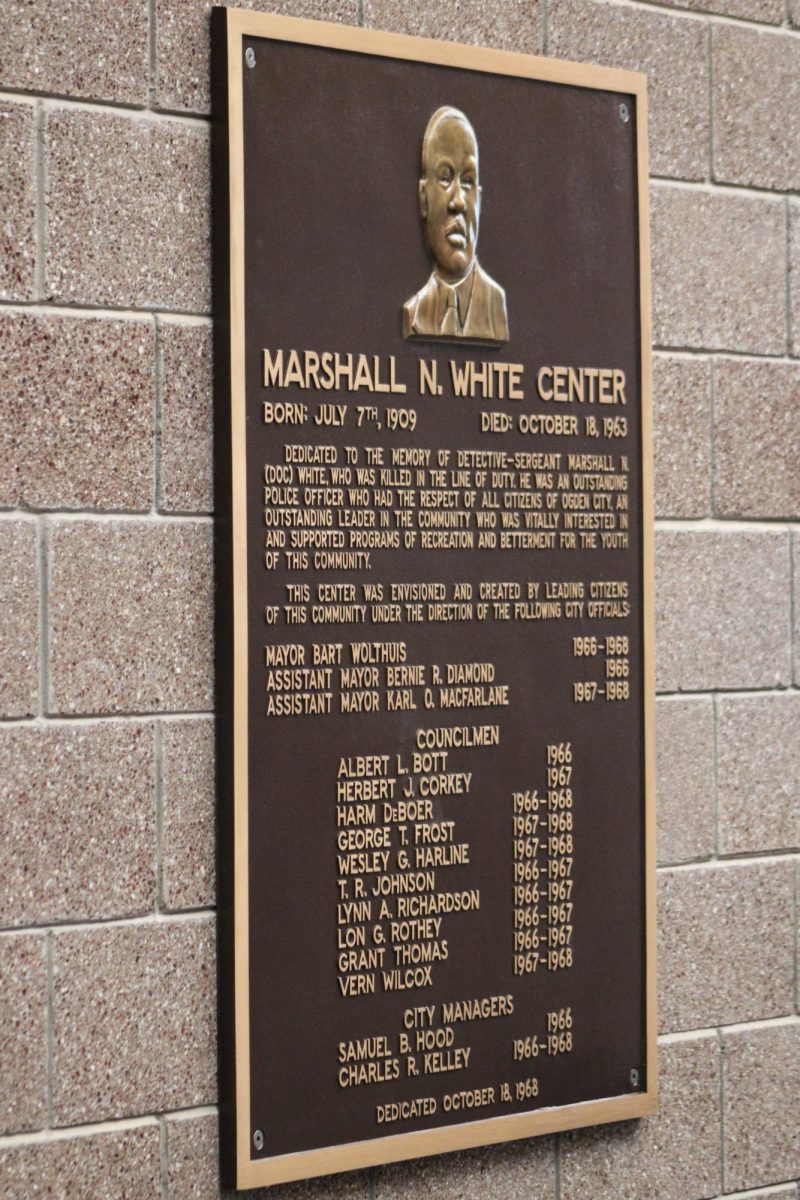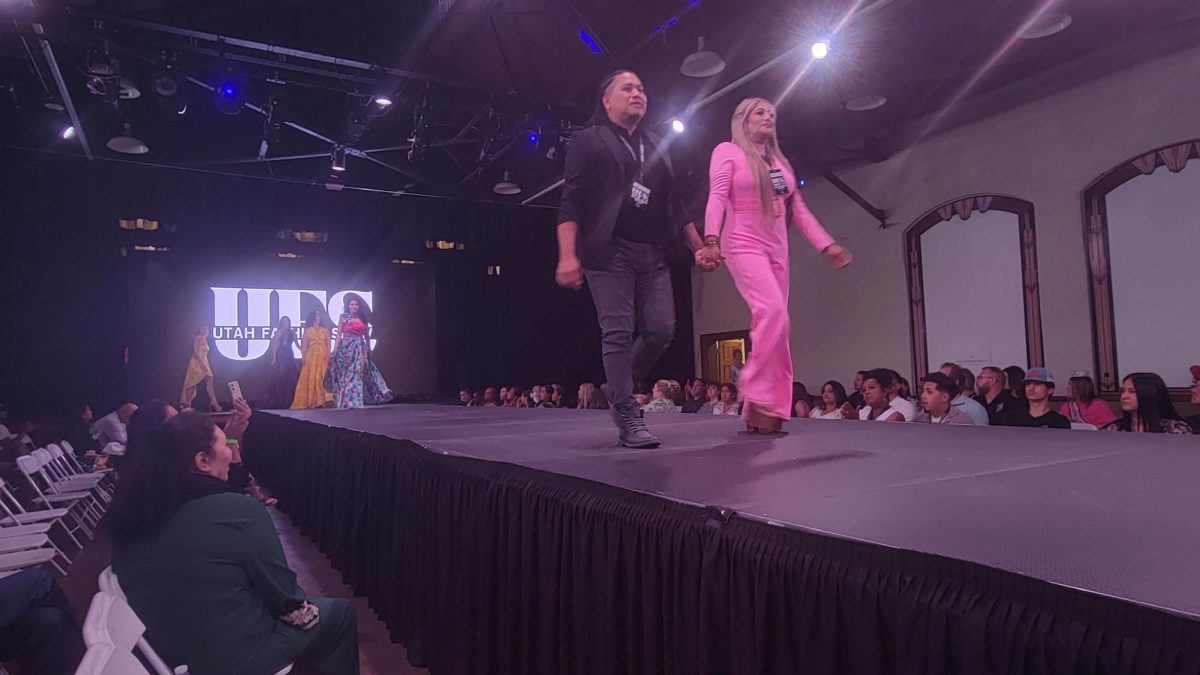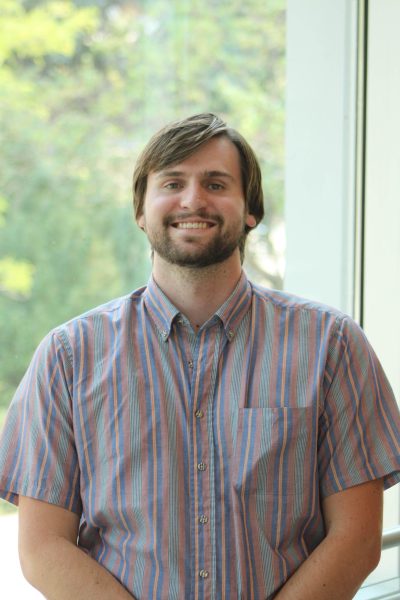Original Spanish version written by Valentina Rodriguez and Tanner Scott
Translated to English by Nathanael Stout
This article, originally written in December 2023, has been edited for length.
Luz Escamilla carries a profound perspective about the equality of rights as the youngest minority leader in the senate. She underlines, in a sophisticated manner, the principal barrier that impedes women from the opportunity to ascend in the leadership labor force in the state of Utah.
She obtained her bachelor’s degree in business marketing and a master’s in political science from the University of Utah. She has dedicated her time to defy the barriers that remain in order to defend the aid of minorities, women and education.
Escamilla highlights her untiring efforts to improve gender equality and the empowerment of women. She has the hope of elevating women in their professional trajectory and changing the alarming position that this state is in.
Q: Can we hear a bit about your cultural identity?
A: My cultural diversity has to do with where I’m from, and a bit to do with my family. I’m Latina and Mexican by birth. I was born and raised in Mexico for the majority of my childhood. I’m an immigrant that came to pursue the American Dream, just like thousands of others in this country. I’m a woman, a mother, a sister, a daughter and a woman of color. To be able to help women is one of the most important priorities of my public policy.
Q: Why did you get into politics, or in other words, where did your political calling come from?
A: Well, I think that working in politics for me has been mostly working to find justice and equality for people. Arriving in a country as an adult and finding out that in the country of the American Dream there was such a large disparity with regards to health and education — and the postal code where you were born and where you live determines basically the results you will have in your life — was something that took a while for me to understand and accept. So, instead of complaining, I decided to do something about it.
In reality, for me the calling began in Mexico. I grew up with my maternal grandmother, and during her time she was a heroine who broke barriers as an elected woman. I could see how she dedicated herself to bringing change to her community. She inspired me. … My heart is in public policy. My calling was already a part of my genetics, and it’s an honor and a blessing to serve in this position.
Q: A study from WalletHub rated Utah in last place in the nation when it comes to women’s political empowerment and presence in executive positions in businesses. They found that women are the “disadvantaged” gender. Why do you think that women in Utah don’t have leadership positions?
A: After 15 years in the senate, being the first latina elected, the youngest elected and the first immigrant in the legislature, you realize the kind of universe we are wrapped up in. I recognize that there is a mountain of work left to fill that hole, but you have to begin with an important point: what are the limitations that a woman faces getting involved in everything she can? If women are graduating with academic honors, why aren’t they involved in the workforce?
Childcare is a grave problem in the state of Utah. It’s horrible. If you don’t have access to daycare and you are a mother, that is a problem. If you ask me, this is the main reason that women haven’t been able to penetrate very far at the executive level, in both business and politics. … Someone has to make sure that the kids are alright during the day, and you can’t work an executive position at night. With these decisions, statistically speaking, the women are the ones that end up staying at home. It’s difficult for a woman to be able to use all that she’s learned and studied to get ahead, which is terrible but an inevitable reality for a family. You have to break the cultural barriers.
We have done studies, however, that show that women do want to work and get ahead in life, and in fact sometimes they graduate with higher academic status than the men.
[WalletHub published a new yet similar study with more positive ratings for Utah.]
Q: At the political level, we want to know what measures have been taken to defend matters of gender equality, such as the elimination of violence between genders, parental leave and childcare, pensions, laws on gender equality and electoral reform?
A: We have carried out many studies about addressing infidelity, reproductive health issues and access to medicine for imprisoned women. … These are problems related to gender, but in reality, is it all centered on who is sitting at the table? … For example, the proposals about being able to breastfeed you kids. To have 14 men making that decision is stupid and disrespectful. … Who is making the decisions about gender representation, the cultural representation with regards to inclusivity, and economics? If you don’t know that, then there isn’t any representation. The good thing is that in generations like yours we are going to have new opportunities. That gives me hope.
Q: What message would you give to the new generation of women that are preparing to be the future leaders of the United States, with respect to their role in ending barriers of gender equality?
A: The message is very clear. Overall, for women of color and latinas, don’t ask for permission for anything, just keep moving forward. Do it unapologetically, without asking for forgiveness or permission. … Sometimes we are our worst enemies. We are all prepared, and every experience is your own. Nobody gave it to you, and nobody can take it away because you got it yourself. Don’t ask for forgiveness or permission because if you feel that in your heart, you are called, do it. I’m not going to guarantee that it’s easy, because it won’t be. You have to work twice as hard. The more we open the door for each other, the closer we will get to a balance.
Valentina Rodriguez is a DLI Spanish Bridge student from Layton High School who is studying
the power of “Breaking down walls and Building Identities.”
This year’s bridge program focuses on the importance of activism, social change and building identities with social conscience. As a woman in business and STEM, Valentina took this opportunity to spark a call-to-action regarding the lack of female representation in business executive positions and/or political empowerment in Utah.
Working alongside Escamilla empowered Valentina to set ambitions “unapologetically” high and to navigate life experiences with a persistent attitude and secure personality. Valentina also learned to not question her ability to impact a community to the highest level, “because that is the calling of a leader.”


